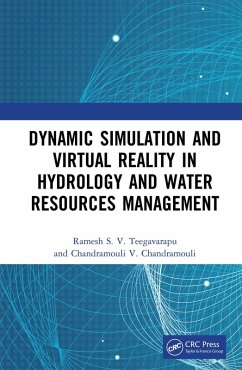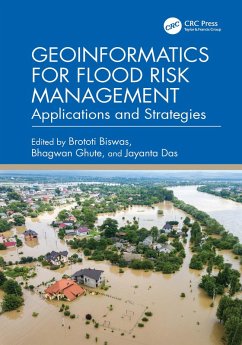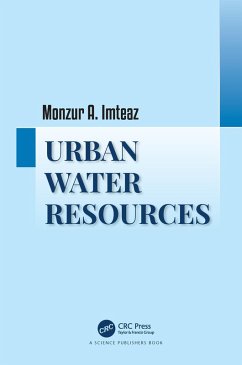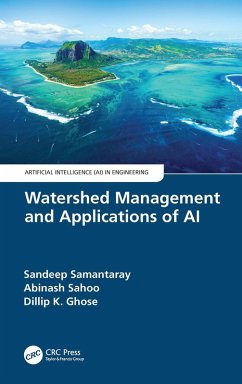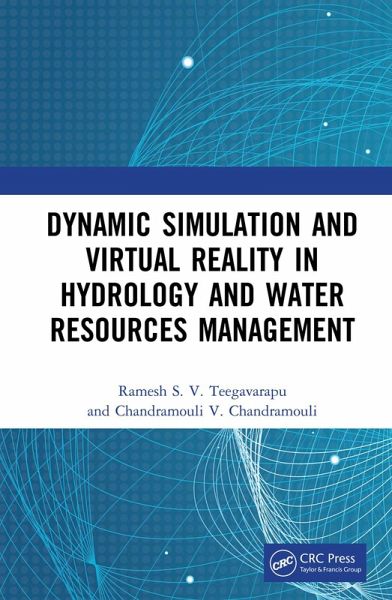
Dynamic Simulation and Virtual Reality in Hydrology and Water Resources Management (eBook, PDF)
Versandkostenfrei!
Sofort per Download lieferbar
47,95 €
inkl. MwSt.
Weitere Ausgaben:

PAYBACK Punkte
24 °P sammeln!
Dynamic Simulation and Virtual Reality in Hydrology and Water Resources Management focuses on the understanding, use, and application of system dynamics simulation and virtual reality approaches for modeling the spatial and temporal behavior of natural and managed hydro-environmental systems.The book discusses concepts of systems thinking and system dynamics approach, and it furthers understanding of the dynamic behavior of natural and engineering systems using feedbacks and dynamic simulation. Numerous examples of models built using different system dynamics simulation modeling environments a...
Dynamic Simulation and Virtual Reality in Hydrology and Water Resources Management focuses on the understanding, use, and application of system dynamics simulation and virtual reality approaches for modeling the spatial and temporal behavior of natural and managed hydro-environmental systems.
The book discusses concepts of systems thinking and system dynamics approach, and it furthers understanding of the dynamic behavior of natural and engineering systems using feedbacks and dynamic simulation. Numerous examples of models built using different system dynamics simulation modeling environments are provided. It also introduces concepts related to computer animation and virtual reality-based immersive modeling. Applications of systems dynamics, simulation with animation, and virtual reality approaches for modeling and management of hydro-environmental systems are illustrated through case studies.
This text is ideal for water resources professionals, graduate students, hydrologic modelers, and engineers who are interested in systems thinking, dynamic simulation, and virtual reality modeling approaches. It will serve as a valuable reference for engineering professionals who model, manage, and operate hydrosystems. Engineering educators will find the book immensely useful to enhance the learning experiences of students.
Dr. Ramesh S. V. Teegavarapu
is a professor at Florida Atlantic University with expertise in modeling water resources and environmental systems, hydroinformatics, and climate change.
Dr. Chandramouli V. Chandramouli is a professor at Purdue University Northwest. His expertise is in water resources and environmental modeling integrating artificial intelligence techniques.
The book discusses concepts of systems thinking and system dynamics approach, and it furthers understanding of the dynamic behavior of natural and engineering systems using feedbacks and dynamic simulation. Numerous examples of models built using different system dynamics simulation modeling environments are provided. It also introduces concepts related to computer animation and virtual reality-based immersive modeling. Applications of systems dynamics, simulation with animation, and virtual reality approaches for modeling and management of hydro-environmental systems are illustrated through case studies.
This text is ideal for water resources professionals, graduate students, hydrologic modelers, and engineers who are interested in systems thinking, dynamic simulation, and virtual reality modeling approaches. It will serve as a valuable reference for engineering professionals who model, manage, and operate hydrosystems. Engineering educators will find the book immensely useful to enhance the learning experiences of students.
Dr. Ramesh S. V. Teegavarapu
is a professor at Florida Atlantic University with expertise in modeling water resources and environmental systems, hydroinformatics, and climate change.
Dr. Chandramouli V. Chandramouli is a professor at Purdue University Northwest. His expertise is in water resources and environmental modeling integrating artificial intelligence techniques.
Dieser Download kann aus rechtlichen Gründen nur mit Rechnungsadresse in A, B, BG, CY, CZ, D, DK, EW, E, FIN, F, GR, HR, H, IRL, I, LT, L, LR, M, NL, PL, P, R, S, SLO, SK ausgeliefert werden.




